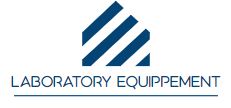MONOCLONAL ANTIBODIES FOR THE STUDY AND TREATMENT OF GLIOMA

Glioma is one of the most common types of cancer of primary brain tumors. It develops in the brain and spinal cord. They start in glial cells that surround nerve cells and help them function. Depending on the type of glial cell it affects, the characteristics and type of tumor will vary.
In our post on monoclonal antibodies for cancer, we told you about some of the mechanisms and examples that these antibodies use to try to fight this type of disease.
In the case of glioma, many studies have shown that the blood-brain barrier allows the entry of monoclonal antibodies, which is why they are considered a good starting point for the treatment of intracranial malignant cells.
For the investigation of the glioma, antibodies that are directed, for example, against different growth factors are used, which we will discuss later. The study of these biomarkers plays a fundamental role in the development of the disease.
3 MONOCLONAL ANTIBODIES FOR THE STUDY AND TREATMENT OF THE GLIOMA:
Bevacizumab
As we mentioned in other posts, this monoclonal antibody attacks the vascular endothelial growth factor (VEGF) whose main objective is to prevent angiogenesis, the generation of blood vessels by the tumor to obtain nutrients and promote its growth.
In this case, Bevacizumab, also called Avastin, is mainly used for glioblastomas. It can be used alone or combined with chemotherapy by intravenous infusion.
Everolimus
This antibody promotes reduction of tumor size or growth rate. It binds to a protein cell, mTOR, which promotes cell growth and division.
This type of antibody is administered in pill form, in most cases.
Nimotuzumab
In this case, nimotuzumab is also directed against a growth factor receptor, in this case the endothelium (EGFR), inhibiting its growth. Furthermore, it promotes apoptosis, limits tumor neo-angiogenesis and has radiosensitizing action. This is why this antibody is often used in combination with radiation therapy.
If your research project is related to this disease, at Abyntek we have a multitude of monoclonal and polyclonal antibodies for the study of glioma against biomarkers of this type of tumor.
